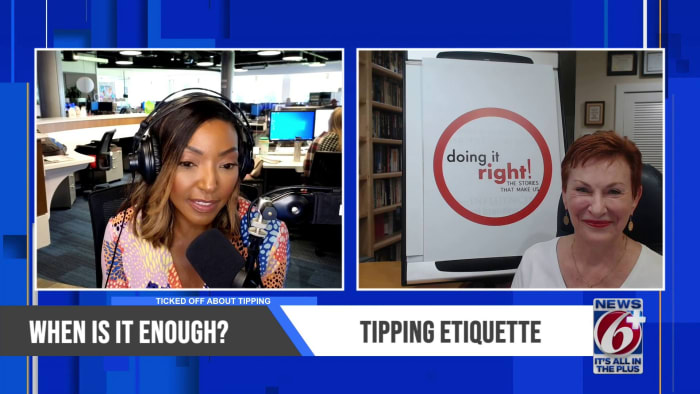Perhaps you’ve noticed. We have reached a tipping point in the country over tipping.
To tip or not to tip has led to Shakespearean soliloquies by customers explaining why they refuse to tip for certain things.
During the height of the COVID-19 pandemic, customers were grateful for those who seemingly risked their safety so we could get groceries, order dinner or anything that made our lives feel normal. A nice tip was the least we could do to show gratitude.
But now that we are out about and back to normal, the custom of tipping for just about everything has somehow remained; and customers are upset.
A new study from Pew Research shows most American adults say tipping is expected in more places than it was five years ago, and there’s no real consensus about how tipping should work.



Sure. Take every penny the CEO of GM makes. Divide it by GM employees. You have less money than they got in raises due to the strike.
Prices will go up instead.
7 Billion divided by 4.5 is right around 1.55 billion dollars. $29 million is significantly closer to $0 than it is to $1.55 billion. Strip all of the pay from every senior leader and you’re still nowhere close.
https://www.reuters.com/business/autos-transportation/gm-reaches-tentative-deal-with-uaw-source-says-2023-10-30/
So no, the math doesn’t work.
What is the math you’re referring to? If you wouldn’t mind re-explaing your point? Full disclosure, I responded to the last comment while very drunk and I don’t recall the crux of the discussion. However, passing the cost of the raises onto the consumer is still greed in my opinion. Also wasn’t this thread originally about tipping? How’d we get to automakers? Do we have to tip factory workers now? I haven’t bought a car in a while.
All costs of raises are always passed onto the consumer. All business costs are.
You asked for math on how employee pay cannot be cannibalized from internal budgets, so I linked you a very in-the-spotlight example with clear math attached.
Is it your belief that restaurants would somehow be fundamentally different in terms of how labor costs work?
I appreciate the sum up. I think that workers for the restaurant shouldn’t have to beg the public to make a living wage and wages should be covered by the employer. If they company can’t afford to give their employees a living wage while the CEO is buying multiple homes and yachts, then it’s a moral failure on the company and the government that allows that to happen. It’s wrong that costs are always passed onto the customers, but those dragons need their hoards to sleep on it seems.
Nothing you state here applies to the discussion at hand.
Also rich people aren’t rich because they hoard money. The exact opposite is true. Most wealth is in stock.
The discussion about tipping? How is my comment not relevant?
Instead of the CEO and other upper management, try stock buybacks and dividends, which enrich the actual owners. GM spent $21 billion on stock buybacks in the past 12 years, and around $18 billion in stock dividends. That averages to over $3 billion a year, which is over twice the worker raise from the strike — and a lot of that raise is going toward correcting the 19.3% pay cut they took after 2008.
@halykthered@lemmy.ml
How about the CEO, upper management, and stock buybacks? If all of those aforementioned are contributing to directing value created by the workers away from those who generate it, and those who generate the wealth are struggling to live, then that wealth needs to be refocused back to the workers.
well yeah, fuck the CEO and upper management. This was my response to /u/SCB telling you there’s no wealth to redistribute. I tagged you so you would also see it.
Ah word, I appreciate it. Their name is familiar to me so I’m pretty sure they’re a troll.